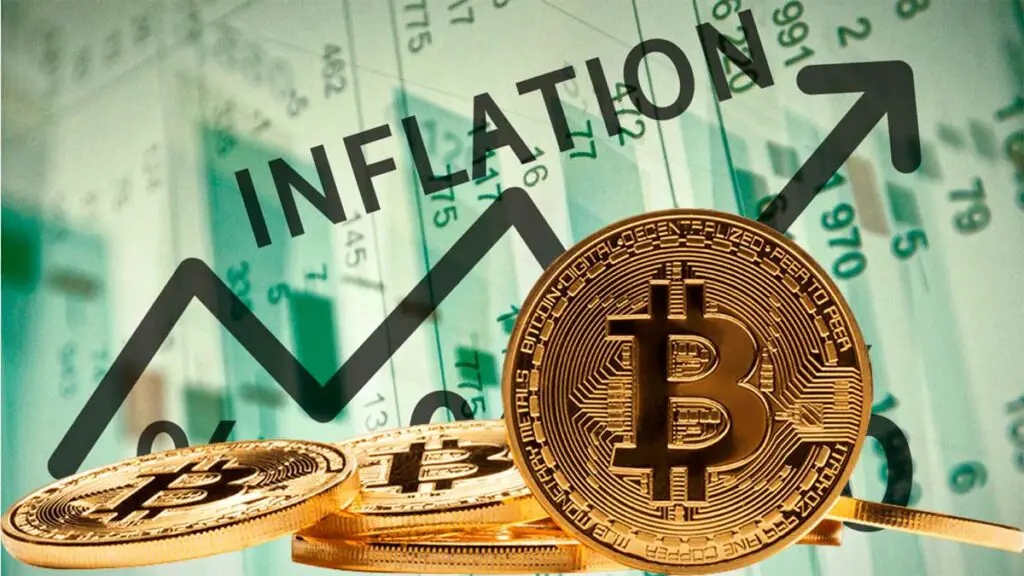Bitcoin prices move higher after new data shows inflation slowed in May – Kat Technical
The Resurgence of Bitcoin Amid Slowing Inflation

In a significant turn of events, Bitcoin prices have surged following the release of new economic data indicating a deceleration in inflation for May. This development has sparked renewed optimism among investors and cryptocurrency enthusiasts alike, as the easing of inflationary pressures suggests a more favorable economic environment for digital assets. The relationship between inflation and Bitcoin prices is complex, but this recent data provides a compelling case for the cryptocurrency’s role as a hedge against inflation and a store of value.

Understanding the Link Between Inflation and Bitcoin
Inflation: A Brief Overview
Inflation refers to the rate at which the general level of prices for goods and services rises, eroding purchasing power. Central banks, such as the Federal Reserve in the United States, aim to control inflation through monetary policy to maintain economic stability. When inflation is high, the value of fiat currencies diminishes, prompting investors to seek alternative assets that can preserve value.
Bitcoin as an Inflation Hedge
Bitcoin, often dubbed “digital gold,” is considered by many to be a hedge against inflation due to its limited supply and decentralized nature. Unlike fiat currencies, which can be printed at will by central banks, Bitcoin’s supply is capped at 21 million coins. This scarcity, combined with increasing demand, supports its value over time. As inflation rises, traditional currencies lose value, making Bitcoin an attractive alternative for preserving wealth.
Recent Economic Data: Inflation Slows in May
Key Indicators of Slowing Inflation
The latest economic data reveals that inflation in May slowed more than expected. Key indicators such as the Consumer Price Index (CPI) and Producer Price Index (PPI) showed a notable decrease in the rate of price increases. The CPI, which measures the average change in prices paid by consumers for goods and services, rose by 4.9% year-over-year, down from 5.4% in April. Similarly, the PPI, which tracks changes in prices received by producers, increased by 6.6% year-over-year, compared to 8.1% in the previous month.
Impact on Market Sentiment
The slowing of inflation has had a positive impact on market sentiment. Investors, relieved by the prospect of more stable prices, have increased their exposure to riskier assets, including cryptocurrencies. This shift in sentiment is particularly evident in the recent surge in Bitcoin prices, as market participants anticipate that the easing of inflationary pressures will reduce the need for aggressive monetary tightening by central banks.
Bitcoin’s Price Surge: Analyzing the Numbers
Bitcoin’s Recent Performance
Following the release of the inflation data, Bitcoin experienced a significant price increase. On the day the data was released, Bitcoin’s price surged by over 7%, breaking through key resistance levels and reaching a high of $45,000. This rally represents a substantial recovery from the cryptocurrency’s recent lows and underscores the renewed confidence among investors.
Technical Analysis
Technical analysis of Bitcoin’s price chart reveals several bullish indicators. The Relative Strength Index (RSI), a momentum oscillator, has moved into overbought territory, suggesting strong buying pressure. Additionally, the Moving Average Convergence Divergence (MACD) indicator shows a bullish crossover, further confirming the upward trend. These technical signals, combined with the positive macroeconomic backdrop, support the case for continued price appreciation in the near term.
Broader Implications for the Cryptocurrency Market
Increased Institutional Interest
The slowing of inflation and subsequent rise in Bitcoin prices have also attracted increased interest from institutional investors. Major financial institutions, including hedge funds and asset managers, are diversifying their portfolios by allocating more capital to digital assets. This trend is expected to continue as more traditional financial players recognize the potential of cryptocurrencies to provide returns and hedge against macroeconomic risks.
Regulatory Developments
Regulatory developments also play a crucial role in shaping the cryptocurrency market. The recent slowdown in inflation may influence regulatory bodies to adopt a more favorable stance towards digital assets. Governments and regulatory agencies are increasingly acknowledging the legitimacy of cryptocurrencies and blockchain technology, paving the way for more comprehensive and supportive regulatory frameworks. This regulatory clarity can further boost investor confidence and drive market growth.
Potential Risks and Considerations
Volatility Concerns
Despite the positive outlook, it is important to acknowledge the inherent volatility of the cryptocurrency market. Bitcoin and other digital assets are subject to significant price fluctuations, influenced by a range of factors including market sentiment, regulatory news, and technological advancements. Investors should remain cautious and consider the potential risks associated with investing in highly volatile assets.
Macroeconomic Uncertainties
While the recent slowdown in inflation is a positive development, macroeconomic uncertainties remain. Factors such as geopolitical tensions, changes in monetary policy, and economic disruptions could impact inflation and, consequently, the performance of cryptocurrencies. It is crucial for investors to stay informed and adapt their strategies in response to evolving economic conditions.

Conclusion:
The recent surge in Bitcoin prices following the slowdown in inflation underscores the cryptocurrency’s potential as a valuable asset in times of economic uncertainty. As inflationary pressures ease, Bitcoin’s appeal as a hedge against inflation and a store of value is likely to strengthen, attracting more investors to the market. While challenges and risks persist, the broader adoption of cryptocurrencies and supportive regulatory developments provide a promising outlook for Bitcoin and the wider digital asset ecosystem.



